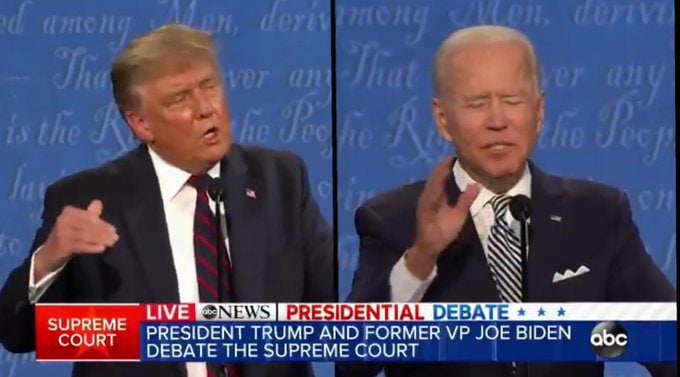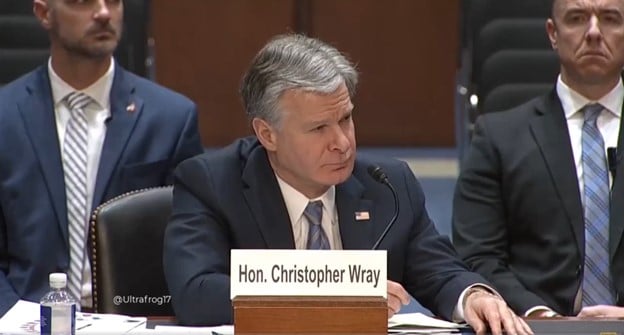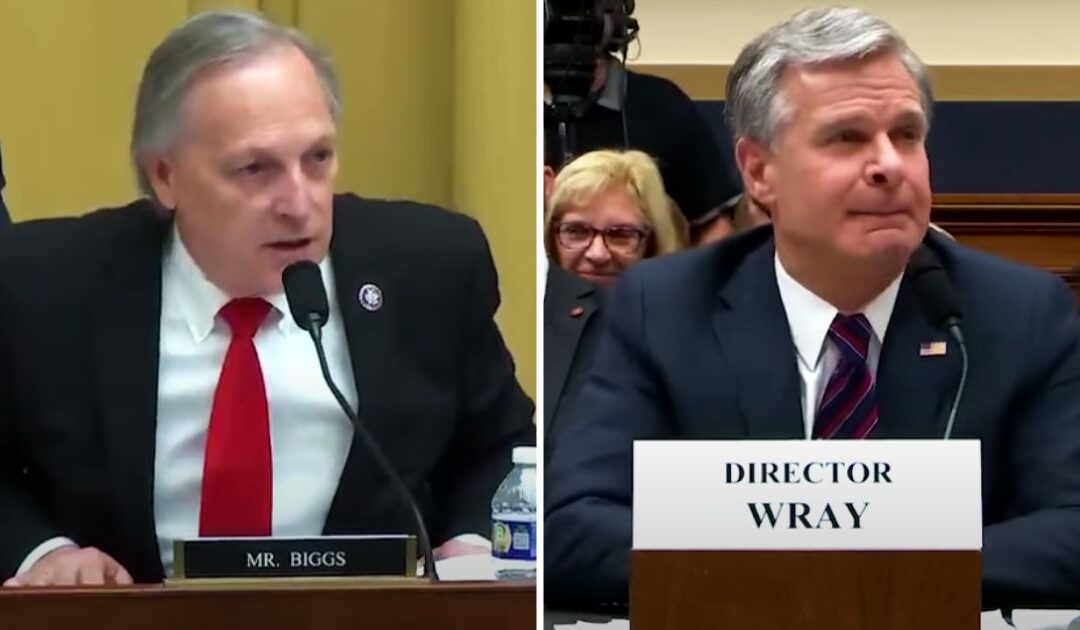Today, Congressman Andy Biggs (R-AZ) introduced the Protect Liberty and End Warrantless Surveillance Act (PLEWSA)—legislation that ends the warrantless surveillance of Americans and combats the weaponization of the federal government.
The PLEWSA overhauls Section 702 of the Foreign Intelligence Surveillance Act (FISA) and requires a warrant for all U.S. person searches. FISA 702 authorizes the federal government to intercept electric communications of non-U.S. persons who are located outside of the United States. But, the communications of Americans are often swept up when monitoring foreign persons, are kept by the intelligence agencies, and can be later accessed without a warrant. This type of backdoor surveillance has been going on for decades and allows for rampant abuse of the FISA authorities.
The legislation additionally reforms the Foreign Intelligence Surveillance Court and closes loopholes that allow the federal government to purchase Americans’ data from Big Tech companies without a warrant.
Cosponsors of the legislation are: Rep. Jim Jordan (R-OH), Rep. Jerry Nadler (D-NY), Rep. Pramila Jayapal (D-WA), Rep. Warren Davidson (R-OH), Rep. Sara Jacobs (D-CA), and Rep. Russell Fry (R-SC).
“America’s intelligence community continues to conduct a warrantless, mass surveillance campaign on innocent citizens. In 2021 alone, the FBI misused FISA 278,000 times to spy on American citizens – including a U.S. congressman and political donors. Our civil liberties are at stake. Without serious reforms to FISA 702, our Fourth Amendment rights will be all but gone. My legislation addresses numerous loopholes in federal law to end this unconstitutional practice and to ensure rogue agents are held accountable. I am grateful for the bipartisan, bicameral effort to overhaul the FISA 702 spying authority. I call on my colleagues to pass this legislation into law,” said Congressman Biggs.
“Substantial reforms to FISA are long overdue, and we commend Chairman Biggs for his steadfast commitment to reining in unchecked surveillance of Americans. The House has never been in a better position to pass sweeping and much-needed reforms, and we look forward to the Protect Liberty and End Warrantless Surveillance Act’s consideration in the Judiciary Committee,” said Congressman Jim Jordan (R-OH), House Judiciary Committee Chairman.
“The Fourth Amendment is clear and non-negotiable — government surveillance of Americans requires a warrant, a mandate that remains as relevant online as it does offline. I’m grateful to Congressman Biggs and Chairman Jordan for their steadfast commitment to ensuring that the House Judiciary bill includes a warrant requirement consistent with the Fourth Amendment, increases penalties for illegal searches of Americans’ communications, and enacts substantive reforms to the FISA Court,” said Senator Mike Lee (R-UT).
“There is broad bipartisan support for Ben Franklin’s notion that you can protect Americans’ security and liberty at the same time. This legislation includes important commonsense protections that are in the legislation Senator Lee and I authored, with Reps. Davidson and Lofgren, while also reauthorizing an important government surveillance authority. I applaud Rep. Biggs and Rep. Nadler for their work,” said Senator Ron Wyden (D-OR).
“The Protect Liberty and End Warrantless Surveillance Act is a significant step forward to restoring the right to privacy. This legislation prohibits the government from purchasing Americans’ data from big tech companies without a search warrant and adds needed warrant requirements to Section 702 of FISA. Our constitution is not for sale and the right to privacy must be protected,” said Congressman Warren Davidson (R-OH).
“The House Judiciary Committee has unveiled the most important government surveillance reform measure since the creation of FISA in 1979. This bill addresses a growing crisis. Our government, with the FBI in the lead, has come to treat Section 702 – enacted by Congress for the surveillance of foreigners on foreign soil – as a domestic surveillance program of Americans. “The government used this authority to conduct over 200,000 ‘backdoor searches’ of Americans in 2022. Section 702 has been used to search the communications of sitting House and Senate Members, protesters across the ideological spectrum, 19,000 donors to a congressional campaign, journalists, and a state court judge. The American people can see that Section 702 has morphed into something that Congress never intended. The House Judiciary Committee – with the leadership of Chairman Jim Jordan, Ranking Member Jerry Nadler, and Rep. Andy Biggs – has now crafted a bill that restores the rule of law. This bill allows Section 702 to continue to protect Americans by conducting surveillance of foreign spies and terrorists. But it does so in a way that respects the Fourth Amendment. By achieving this balance, the Judiciary Committee’s bill promises to rebuild the trust of the American people in the law, strengthening both our society and our national security,” said Bob Goodlatte, former House Judiciary Committee Chairman and the Project for Privacy and Surveillance Accountability Senior Policy Advisor.
“Millions of Americans are demanding serious reforms of the government’s warrantless surveillance powers and real accountability for agencies’ widespread violations of our privacy. This fight is crucial given the upcoming expiration of Section 702. The Protect Liberty and End Warrantless Surveillance Act promises to deliver on several key priorities, paving a critical path forward and cementing the Judiciary Committee’s leadership in defending the Fourth Amendment,” said Adam Brandon, President of FreedomWorks.
“The Protect Liberty and End Warrantless Surveillance Act includes many of the substantial solutions we have advocated for, such as a warrant requirement and closing the data broker loophole. The proposal by Representative’s Biggs and Nadler exemplifies a commitment to balancing national security with the protection of individual privacy. We look forward to working with the committee to secure these critical and necessary reforms to prevent future abuses of this powerful spying authority,” said James Czerniawski, Senior Policy Analyst for Americans for Prosperity.
“The Protect Liberty and End Warrantless Surveillance Act proves that the House Judiciary Committee, unlike the Intelligence Committees, takes seriously the need to enact major protections for Americans’ privacy given the government’s continuous, severe abuse of warrantless spying powers. We are heartened to see Chairman Jordan and Ranking Member Nadler agree with the urgent concerns of their constituents and colleagues, from Representatives Biggs, Davidson, and Massie on the right to Representatives Chu, Jayapal, and Lofgren on the left. Together, they have created a path forward for ending Section 702’s dangerous backdoor search loophole, for closing the Data Broker Loophole that agencies secretly exploit to buy our sensitive information from data brokers, for accountability and oversight, and more. The Judiciary Committee has created a critical opportunity for members of Congress to consider real surveillance reform,” said Sean Vitka, Policy Director of Demand Progress.
“The Protect Liberty and End Warrantless Surveillance Act (PLEWSA), unlike the proposals from the Senate and House Intelligence Committees, is what responsible, meaningful reform looks like. This bill builds on the bipartisan consensus—among members of Congress and the American public—that significant reform to the government’s warrantless surveillance authorities is the only path to reauthorizing Section 702. This bill encompasses key reforms, including prohibiting warrantless backdoor searches, closing the data broker loophole, and enacting a host of other vital reforms. While there is still work to be done, EPIC applauds the House Judiciary Committee for rising to this moment to address many of the most pressing harms of the government’s warrantless surveillance ecosystem,” said Jeramie Scott, Senior Counsel and Director of the Electronic Privacy Information Center’s (EPIC) Project on Surveillance Oversight.
“The Protect Liberty and End Warrantless Surveillance Act would ensure the protection of Americans’ Fourth Amendment rights and finally address the countless abuses of Section 702 that we have seen from the government. This legislation would ban warrantless backdoor searches of Section 702 databases for Americans’ communications and it would prohibit law enforcement from circumventing core constitutional protections by purchasing Americans’ data that they would otherwise need a warrant to obtain. We urge every member of the House Judiciary Committee to vote in favor of this legislation, and it should be quickly followed by a vote from the full House of Representatives,” said Kia Hamadanchy, Senior Policy Counsel at the American Civil Liberties Union (ACLU).
“Our scandal-ridden intelligence agencies have been caught harassing and stalking the American people one too many times. For years, they have been treating giving money to a cause, protesting, and questioning the government as grounds for reasonable suspicion, instead of as the lawful and appropriate activities of a free people. They’ve been trawling through millions of Americans’ communications without a warrant, and if they can’t get a warrant, they’ve been just buying their way around one by getting our personal information from data brokers. It’s time for a restraining order, and this bill, PLEWSA, does the job. This is a strong, responsible bill, that protects U. S. persons’ security and privacy. It doesn’t bar the intelligence agencies from collecting relevant information; it simply requires them, as the Founders intended, to get a warrant by default for queries involving a U. S. person. Thanks to the dedicated work of experts in the field, the bill offers well-thought-out exceptions for emergencies and for situations where they have explicit consent. Unlike the empty gestures at reform of the Senate Intelligence Committee, this bill would force the agencies to grow up and start respecting the citizens they are sworn to protect, instead of delving into our communications whenever they see fit,” said Alex Marthews, National Chair of Restore The Fourth.
“The Protect Liberty and End Warrantless Surveillance Act is a strong reform bill that would both close the backdoor search loophole and tackle other ways in which the government is gaining warrantless access to Americans’ private information, including purchasing it from data brokers. The bill also includes robust provisions to make the FISA Court more effective in its oversight. We are pleased to see these House Judiciary Committee leaders standing up for Americans’ civil liberties and offering a clear, powerful, and bipartisan alternative to the window dressing favored by the House and Senate intelligence committees,” said Elizabeth Goitein, Senior Director of the Liberty & National Security Program of the Brennan Center for Justice at NYU School of Law.
“The Protect Liberty and End Warrantless Surveillance Act is a critical step in defending the civil liberties and civil rights of Asian Americans and all Americans. We appreciate the bipartisan support from members of the House Judiciary Committee in taking seriously the need for substantial protection against the government’s abuse of warrantless spying powers. Together, they’re addressing the flaws in surveillance, closing Section 702’s backdoor search loophole, and eliminating the Data Broker Loophole that disproportionately threatens communities of color. This legislation also brings much-needed accountability and oversight, standing in stark contrast to the House and Senate Intelligence committees’ attempts to not only sidestep real privacy protections, but actually expand warrantless surveillance,” said Cynthia Choi, Co-Founder of Stop AAPI Hate.
The legislation may be read here.





